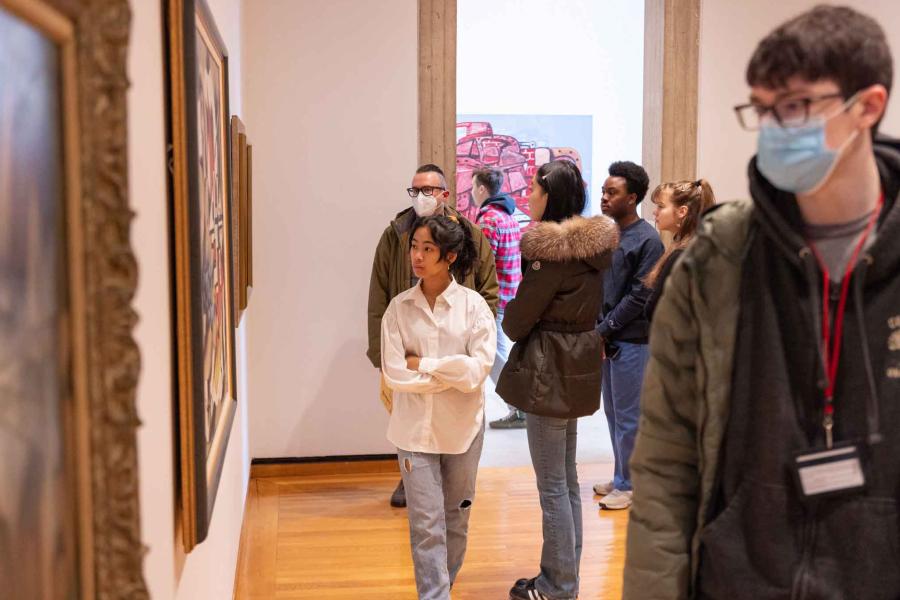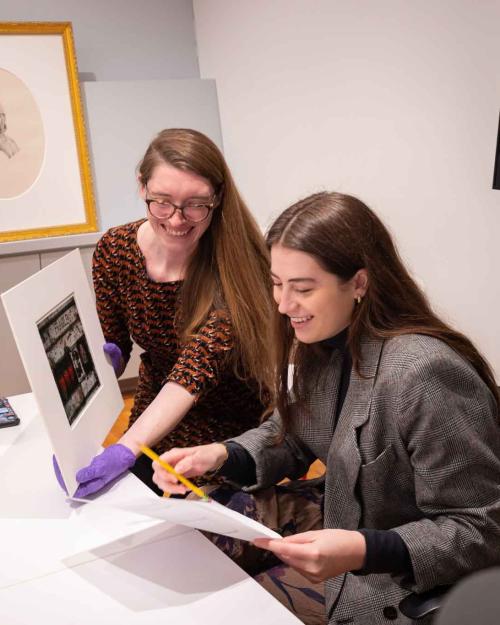Students interested in the way history is reflected in monuments, memorials, museum exhibitions, oral histories and in other ways can now sign up to minor in public history.
The new minor, which became available last fall through the history department, involves a core course, “Monuments, Museums and Memory,” taught this semester by Stephen Vider, assistant professor of history and director of the Public History Initiative in the College of Arts and Sciences.
This semester, the class of 35 students delved into the ethics and methods of historical production, visited the Rare and Manuscript Collection and the Johnson Museum and took part in public events featuring guest speakers. Erin L. Thompson, professor of art crime at the City University of New York, visited in March and Dominique Jean-Louis, chief historian of the Center for Brooklyn History at the Brooklyn Public Library will visit Monday, April 17.
“The class is drawing together students who might not otherwise be in the same room together,” Vider said, adding that students come from urban studies, history, communications, American studies, fashion, architecture and city and regional planning. “These students are connecting related questions about how space shapes memory, culture, and politics, through the methods and frameworks of public history.”
Public history refers to any form of historical engagement that moves beyond the traditional classroom and scholarly publications, including monuments, museums, oral history, historical preservation and walking tours, as well as historically-engaged performance and documentary film.
“The larger cultural conversation around Confederate monuments have been especially important in getting students to think more critically about memory in public spaces,” Vider said. “Students come into public history courses knowing some of the underlying questions: Who do we decide to elevate? What history should we seek to remember? How is history reflected in everyday life in ways we don’t always pay attention to?”
Cornell is one of few institutions that offer a public history minor to undergraduate students, Vider said. Most programs focused on public history are at the master’s level. Upcoming courses for 2023-24 include Derek Chang’s course on Asian American oral history, Mayer Juni’s “Biography, History, and Modernity,” Tamika Nunley’s “Black Women and Material Culture,” and Denise Green’s “Fashion, Art and Design Thinking.”
Ally Knapp ’24, who has signed up for the minor, said the courses she took in public history changed the way she looks at life.
The introductory course “pushed me to ask questions about representation and storytelling in history, a subject that has always interested me,” she said. “That course genuinely shifted — for the better — the way that I look at everything.”
Knapp, who is majoring in feminist, gender and sexuality studies, is studying abroad this semester in Sydney, Australia. She said her public history experiences made her think more deeply during a city walking tour.
“I did not take the tour at ‘face value.’ I questioned who the tour was catered to, who was left out of the story I was being told, who crafted the tour, who the stakeholders were, and so on,” she said. “These questions did not diminish what I had learned from the walking tour. Rather, they helped me gain an understanding of the context in which I was learning those things, and they inspired me to do some background research of my own to supplement what I had learned.
“This is what public history is about — asking (sometimes provocative) questions, digging for the truth and gathering information to better understand history and the world we live in.”





